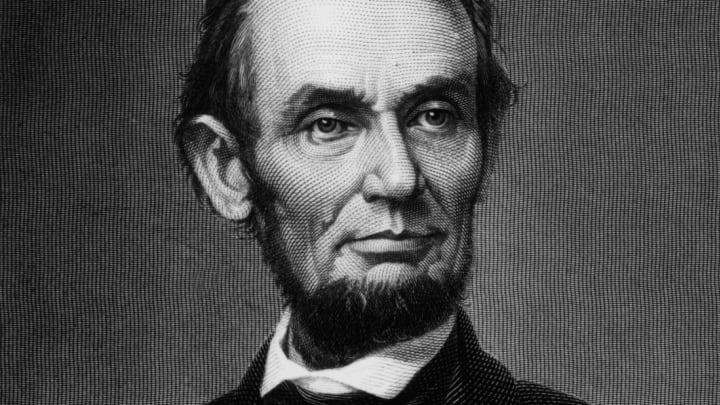Many years ago today, Abraham Lincoln delivered one of the most powerful and meaningful speeches of all time. I bet a lot of us can still recite it (how many of you had to memorize it for school?), but here are a few more facts.
1. Talk about using words wisely. This deeply poignant speech was only 10 sentences long (and really only one run-on) and took a little over two minutes to deliver.
2. There are five existing copies of the Gettysburg Address, all thought to be genuine, although only one has been signed by Lincoln himself. One of the copies is privately owned. The others can be found in the Lincoln Bedroom at the White House, the Lincoln Presidential Library and Museum, and the Library of Congress, which has two of the copies.
3. There is the only known photograph of Abraham Lincoln at Gettysburg that day. It was taken about three hours before he gave the speech.
4. If things had gone as planned, Lincoln would have delivered his speech on October 23 instead of November 19. The event was the dedication of the Gettysburg National Cemetery, a place to honor the more than 7500 soldiers who had died on the field just months earlier. David Wills, the man behind the cemetery, invited a well-known orator to come and speak at the event. The problem? He gave this speaker just 40 days notice, which was just not enough time to prepare a speech. To accommodate him, the dedication was postponed until November 19. Lincoln didn't receive his notice to appear until November 2, giving him just 17 days notice, making him seem as though he were an afterthought.
5. That other orator who needed more than a month to prepare was poor Edward Everett. Lincoln was just supposed to be a footnote to the occasion, remember, and Everett was the main attraction. Everett had a lot of titles to his name—Secretary of State, U.S. Senator, Governor of Massachusetts, and unsuccessful candidate for Vice President of the U.S., to name a few. To prepare for his part, Everett wrote a two-hour speech that he referred to as "The Gettysburg Oration." I guess you know which one is remembered today. I would guess that the majority of people don't even know the name "Edward Everett."
6. Everett, for his part, didn't hold Lincoln's superior speech against him. He sent a letter the next day, telling Abe that "I should be glad if I could flatter myself that I came as near to the central idea of the occasion, in two hours, as you did in two minutes." Lincoln replied that he was just glad that the whole thing wasn't a "total failure."
7. Not everyone held Everett's high opinion of the Address. The Chicago Times said, "The cheek of every American must tingle with shame as he reads the silly, flat and dishwatery utterances of the man who has to be pointed out to intelligent foreigners as the President of the United States." The New York Times loved it, though, referring to the speech as "a perfect gem."
8. Although the urban legend persists, Lincoln did not write the Gettysburg Address on the back of an envelope on the way to Gettysburg. He wrote drafts on Executive Mansion stationery while still in Washington and put the finishing touches on it while staying at David Wills' house the night before the address.
9. "Under God" or not? That's been a source of controversy over the years. Some of the handwritten drafts have "Under God" added in and some don't—including the one that Lincoln was thought to have read from. At least three reporters took down the entire speech and telegraphed it just after it happened, and each of those copies contains the phrase. Most historians take this to mean that it was included in the speech, but still, the debate rages on. While you might infer that the copy we think Lincoln read from isn't actually the copy he read from, some theories suggest that Lincoln simply added the "Under God" as he was speaking and wrote later copies to reflect his adjustment.
10. An estimated 15,000 people showed up to hear Lincoln (and Everett, I suppose) speak that day, including governors from six of the 24 states.
